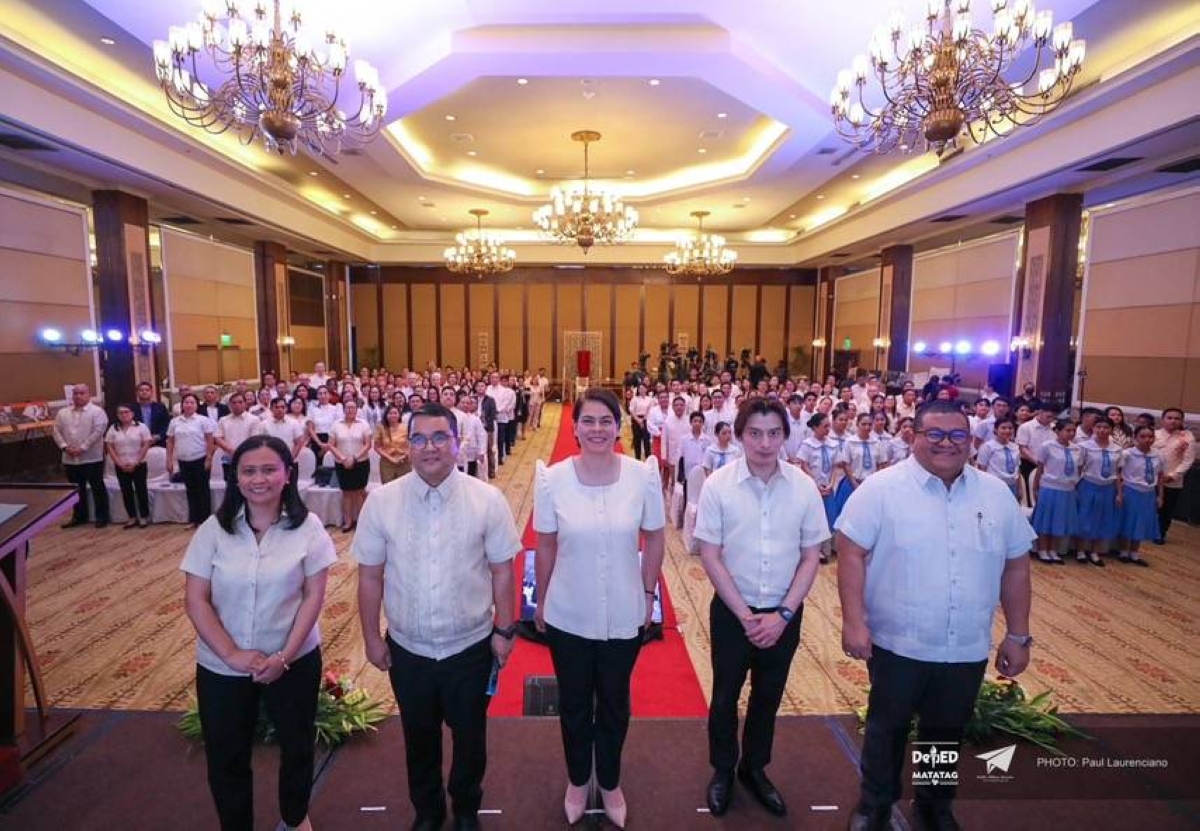The Department of Education (DepEd) has been at the forefront of championing learner rights and protection, as highlighted during this year’s National Children’s Month celebrations. Vice President and Education Secretary Sara Duterte emphasized the importance of providing children with a safe and nurturing learning environment for their holistic development.
According to Duterte, it is the government’s responsibility to ensure that children have a “safe, nurturing, and loving life that allows them to play, learn, and grow into responsible, productive, and well-rounded individuals.” This task is binding and requires the collective effort of elected leaders, policy makers, educators, advocates, development partners, business development supporters, and parents, all working together to champion Filipino children.
During the event, DepEd Learner Rights and Protection Office officer in charge Suzette Gannaban-Medina presented the Learner Rights and Protection Policy, an enhanced version of DepEd Order No. 40, s. 2012. This policy incorporates recent laws related to learner protection, ensuring that the rights and welfare of learners are safeguarded.
The Learner Rights and Protection Policy serves as a comprehensive framework that addresses the various aspects of learner rights and protection. It covers a wide range of issues, including child protection, anti-bullying measures, inclusive education, and gender sensitivity.
One key aspect of the policy is its emphasis on child protection. It recognizes the importance of creating a safe and secure environment for learners, free from any form of abuse, exploitation, or violence. This includes implementing strict protocols for reporting and addressing cases of abuse, as well as providing support and counseling services for affected learners.
The policy also highlights the need for anti-bullying measures in schools. Bullying can have a detrimental impact on a child’s well-being and academic performance. By implementing proactive measures to prevent and address bullying incidents, schools can create a positive and inclusive learning environment for all learners.
Inclusive education is another crucial aspect of the Learner Rights and Protection Policy. It promotes the right of every learner to access quality education, regardless of their background, abilities, or disabilities. This includes providing reasonable accommodations and support services to ensure that learners with disabilities can fully participate in the educational process.
Furthermore, the policy underscores the importance of gender sensitivity in education. It aims to eliminate gender-based discrimination and stereotypes in schools, ensuring that all learners have equal opportunities to learn and thrive. By promoting gender equality and inclusivity, the DepEd is fostering a more inclusive and equitable educational system.
It is worth noting that the Learner Rights and Protection Policy is not just a set of guidelines; it is a commitment from the DepEd to prioritize the rights and welfare of learners. The policy serves as a roadmap for schools and educational stakeholders to create a safe, inclusive, and empowering learning environment for all Filipino children.
By championing learner rights and protection, the DepEd is playing a crucial role in shaping the future of the nation. It is through their efforts that children are given the opportunity to develop into responsible, productive, and well-rounded individuals. As a community, we must continue to support and uphold the principles outlined in the Learner Rights and Protection Policy, ensuring that every child has the chance to thrive and succeed.
Source: The Manila Times







